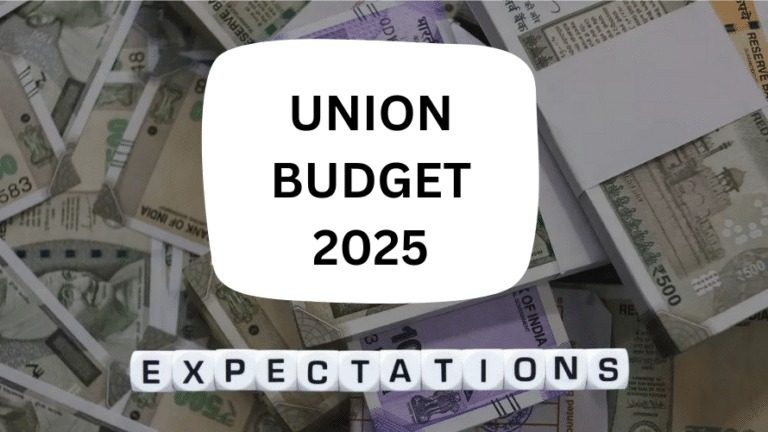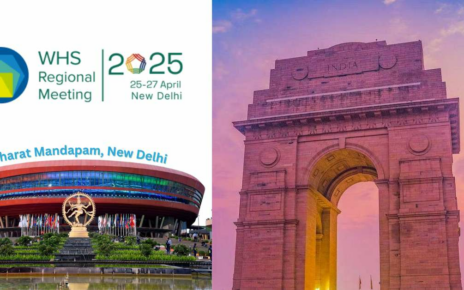As India approaches the presentation of the Union Budget 2025, industry leaders across sectors are voicing their expectations, hoping for strategic policy measures that will drive economic growth, sustainability, and technological advancement. From waste management to bioenergy, electric mobility, and semiconductor manufacturing, stakeholders are seeking targeted reforms to address pressing industry challenges and unlock future potential.
Driving the Circular Economy Through Policy Support India generates 62 million tonnes of waste annually, yet only 12 million tonnes are treated, highlighting a major gap in waste management. Prashant Singh, Co-Founder & CEO, Blue Planet Environmental Solutions, emphasizes that despite initiatives like the Swachh Bharat Mission and LiFE (Lifestyle for Environment), the country still struggles with implementation challenges.
“At this point, we stand at a pivotal juncture, and the Union Budget 2025 presents an opportunity to drive India’s transition from a linear economy to a circular economy. We hope for the necessary rebates on taxes and subsidies for companies promoting circularity to inspire the next generation of entrepreneurs to explore innovative sustainability solutions,” Singh states. He further suggests incentives for converting non-recyclable waste into energy, reducing GST on recycling equipment, and encouraging public-private partnerships to help India meet its net-zero goals.
Boosting Bioenergy for a Sustainable Future Air pollution and energy security remain critical challenges for India, and industry leaders expect the budget to address these concerns through bioenergy incentives. Varun Puri, Managing Director, Green Power International Pvt. Ltd., highlights bioenergy’s role in tackling pollution while enhancing energy security.
“We are hopeful that the upcoming Union Budget will include impactful measures to address the dual challenges of rising air pollution and sustainable energy transition. Policy initiatives that incentivize the setup of bioenergy plants, offer subsidies for advanced energy equipment, and provide financial support for importing cutting-edge clean energy technologies will be essential,” says Puri. He also stresses the need for simplified regulatory processes and tax benefits to accelerate the adoption of sustainable energy solutions.
Strengthening India’s EV Ecosystem The electric vehicle (EV) sector has witnessed commendable government support, but further strategic interventions are required. Kunal Mundra, CEO & Co-Founder, Electrifi Mobility, advocates for a more holistic approach to EV infrastructure and financing solutions.
“Looking ahead to the Union Budget 2025-26, a more holistic and strategic approach is essential for the continued growth of India’s EV sector. While initiatives like the PM E-Drive are commendable, the sector now requires further support in key areas such as infrastructure development and financing solutions,” says Mundra. He believes a favorable policy framework will be crucial in making EVs more accessible and driving adoption across the country.
India’s Semiconductor Aspirations and ER&D Growth The global semiconductor industry is valued at $600 billion, and India is keen to establish itself as a major player. Krishna Bodanapu, Executive Vice Chairman & Managing Director, Cyient, stresses the importance of continued government investment in semiconductor R&D and manufacturing.
“As we approach Budget 2025, we look forward to progressive measures that drive growth in the ER&D and manufacturing sectors through public-private collaborations, R&D incentives, and infrastructure enhancements in railways and aviation. Equally important is the government’s continued commitment to the India Semiconductor Mission,” he states. By fostering self-reliance and technological advancement, India can strengthen its position in global supply chains.
Prabhakar Atla, President & Chief Financial Officer, Cyient, echoes this sentiment, emphasizing that “strategic investments in technology-driven solutions and infrastructure will not only drive industry growth but also create a sustainable future for generations to come.”
Infrastructure & Real Estate Revival Infrastructure Sector Seeks Continued Investment Momentum Mr. Akshat Seth, MD & CEO of HIL Limited, a part of the USD 3 billion CK Birla Group providing housing solutions, highlighted the importance of sustained infrastructure investment. “The Government of India’s allocation of ₹11,11,111 crore (approximately $133 billion) for capital expenditure in the Union Budget 2024-25, representing 3.4% of the GDP, reflected a clear commitment to an investment-led growth strategy focused on creating quality infrastructure. Over the last decade, infrastructure development has been a catalyst for economic growth and employment generation. As a key stakeholder with more than 77 years of participation in the building solutions industry, we at HIL hope this year’s Union Budget continues the infrastructure investment momentum. Government support for initiatives encouraging sustainable building solutions and powering up popular schemes such as Jal Jeevan Mission & PM Awas Yojana can help create employment, improve health & sanitation conditions while providing affordable housing and essential infrastructure to the masses.”
Priya Rustogi, Leader India & Subcon, LWT IMEA, highlights the real estate sector’s potential to drive demand in allied industries like sanitaryware. “We see a renewed focus on domestic consumption and international trade, which could stimulate various sectors, including real estate and construction. For the sanitaryware industry, this translates into rising demand for modern, sustainable, and high-quality bathroom solutions,” Rustogi explains. She advocates for rationalized GST rates on sanitaryware products and policies encouraging sustainable construction practices to align with India’s environmental goals.
Ms. Vandana Tandan, Head of Markets- India & Bangladesh at SIG Group, outlines key expectations from the retail industry & Packaging Sector Expectations. “As the Union Budget 2025 approaches, the retail industry is hoping for transformative measures from the government to foster growth and address ongoing economic challenges. Key expectations include low-interest financing, tax relief, and an accelerated rollout of the National Retail Policy. The Retailers Association of India (RAI) has proposed a special fund, facilitated by SIDBI, to offer low-cost loans and relaxed regulations for small businesses, which would help bridge a critical financial gap in the sector.”
She further adds, “Retailers are also advocating for the steady implementation of the National Retail Policy, which aims to enhance ease of doing business and improve formalization within the industry. Additionally, the packaging sector is seeking policy frameworks to support growth, driven by increased demand from FMCG, E-Commerce, and the shift toward sustainable packaging. The industry is calling for policies that promote eco-friendly packaging solutions, including tax incentives for renewable materials and subsidies for advanced recycling technologies, as well as increased funding for R&D to advance packaging innovation.”
As industry leaders await the Union Budget 2025, their collective expectations underscore the need for a balanced, forward-looking approach. From circular economy incentives and bioenergy policies to EV infrastructure, semiconductor investments, real estate growth, and healthcare inclusivity, the upcoming budget has the potential to shape India’s trajectory in sustainability, innovation, and economic resilience.




